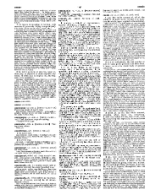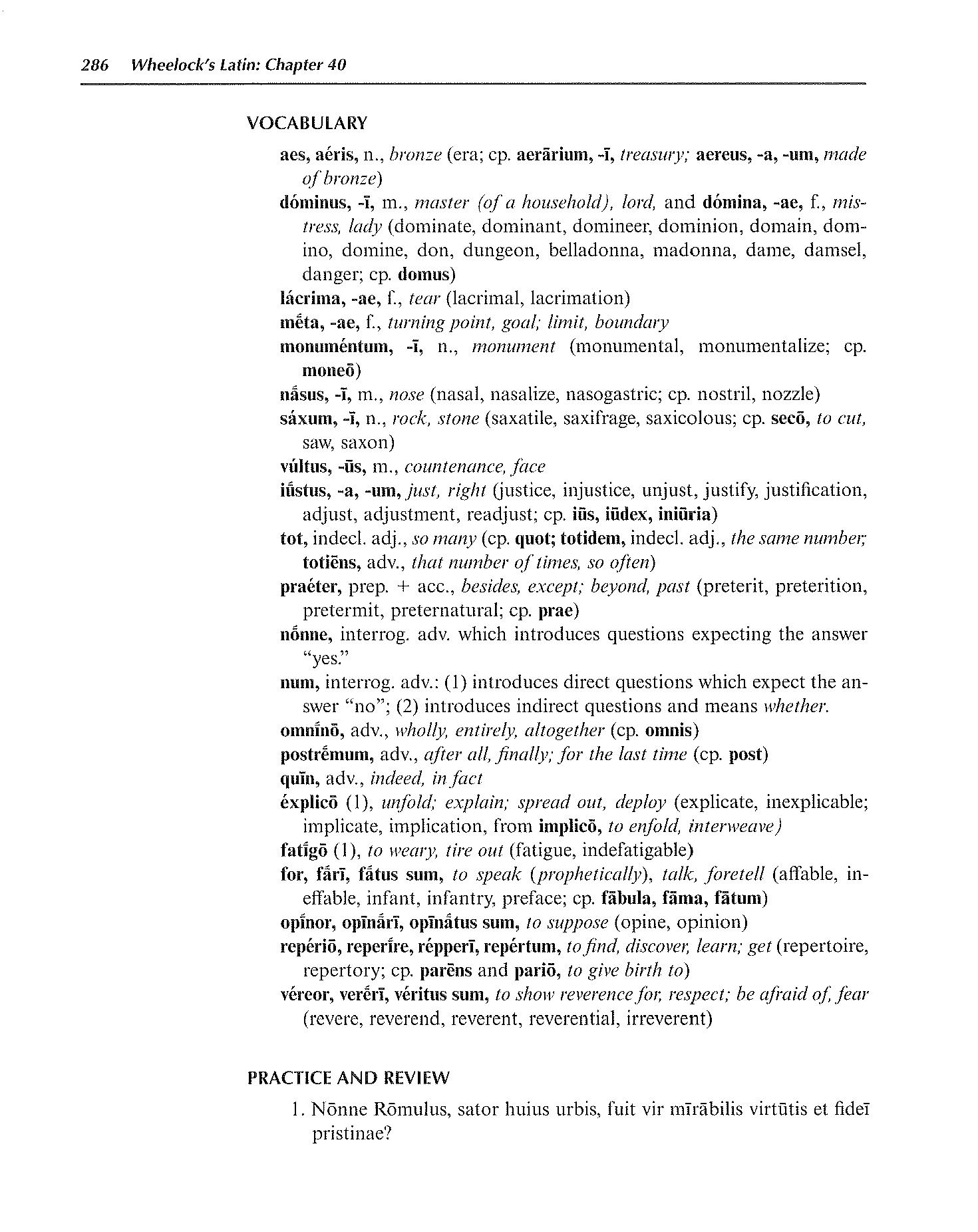
page_listing.tpl
page_subListingDetails.tpl
sub_listingDetails_style1.tpl
sub_listingDetails.title.tpl
omnīnō altogether
omnīnō is a Latin Adverb that primarily means altogether.
Definitions for omnīnō
Wheelock's Latin
Adverb
- 1
wholly, entirely, altogether
Oxford Latin Dictionary
Adverb
- 1
In every respect, in all circumstances, entirely, absolutely, altogether, etc.
- 2
(with numerals or sim.) In all, all told, altogether (esp. in emphasizing the smallness of a total).
Sentences with omnīnō
Latin to English
Galliā omnīnō occupātā, Caesar Rōmam rediit.Compare Gaul having been completely conquered, Caesar returned to Rome (literal). When Gaul had been completely conquered, Caesar returned to Rome.
Si non sum, sensus omnino careo.Compare If I shall not exist, I shall be altogether without feeling.
Quid scribam vobis, patres conscripti, aut quo modo scribam aut quid omnino non scribam hoc tempore, quam perir me cotidie sentio, si scio.Compare May all the gods and goddesses destroy me more miserably than I feel myself to be daily perishing, if I know at this moment what to write to you, how to write it, or what, in short, not to write.
Rudis sum omnino in noster poeta aut iners segnitia est, aut fastidium delicatus.Compare To be altogether unacquainted with out poets betrays either the most helpless idleness, or the most refined fastidiousness.
Hic ego aut omnino falsus. aut certe parvus opinio sum confido.Compare I am confident that these things are either altogether false, or at any rate less serious than they are thought to be.
Data sources
Notes
- Definitions
- Frederick M. Wheelock, Wheelock's Latin, 6th ed., rev. Richard A. LaFleur (New York, NY: HarperCollins Publishers, 2005): 286.
- P. G. W. Glare, Oxford Latin Dictionary, Vols. 1-8 (Oxford: Clarendon Press, 1982): 1148.
- Word frequencies
- Paul B. Diederich, The Frequency of Latin Words and Their Endings, PhD diss., (Columbia University, 1939).
Bibliography
Allen, Joseph H. Allen and Greenough's New Latin Grammar for Schools and Colleges: Founded on Comparative Grammar. Edited by James B. Greenough, George L. Kittredge, Albert A. Howard, and Benjamin L. D'Ooge. Boston, MA: Ginn & Company, 1903.
Crystal, David. A Dictionary of Linguistics and Phonetics. 6th ed. Oxford, UK: Blackwell Publishing, 2008.
Delatte, Louis, Suzanne Govaerts, Joseph Denooz, and Etienne Evrard. Dictionnaire fréquentiel et index inverse de la langue latine [Frequency Dictionary and Inverse Index of the Latin Language]. Liège, Belgium: Laboratoire d'analyse statistique des langues anciennes de l'Université de Liège (L.A.S.L.A.), 1981.
Diederich, Paul B. The Frequency of Latin Words and Their Endings. PhD diss., Columbia University, 1939.
Francese, Christopher. "Latin Core Vocabulary." Dickinson College Commentaries. Last modified 2014. http://dcc.dickinson.edu/latin-vocabulary-list.
Gildersleeve, Basil L., and Gonzales Lodge. Gildersleeve's Latin Grammar: Third Edition, Revised, and Enlarged. 3rd ed. London, England: Macmillan and Co., 1903.
Glare, Peter G.W. Oxford Latin Dictionary. Vols. 1-8. Oxford, England: Clarendon Press, 1982.
Krüger, Bernd. "Latin Conjugation Tables." Cactus2000. Accessed May 5, 2023. https://latin.cactus2000.de/index.en.php.
Pierson, Nick. "Sound of Text." Accessed October 26, 2019. https://soundoftext.com.
Wheelock, Frederick M. Wheelock's Latin. 6th ed. Revised by Richard A. LaFleur. New York, NY: HarperCollins Publishers, 2005.
Wiktionary Contributors. "Victionarium." Wikimedia Foundation, Inc. Updated March 18, 2019. https://la.wiktionary.org/wiki/Victionarium:Pagina_prima.
Citation
Chicago (17th ed.)
Allo Contributors. "omnīnō (adv.) - Latin Word Definition." Allo Latin Dictionary. Last modified . Accessed February 20, 2026. http://ancientlanguages.org/latin/dictionary/omnino.
Entry created on . Last updated on .







